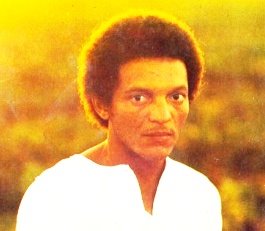Информация об исполнителе
Paulo Diniz: born 24/01/1940
Born in the countryside of Pernambuco, Recife has worked as a crooner in nightclubs and drummer. It was announcer and radio actor and television, Pernambuco and Ceará.
In 1964 he went to Rio de Janeiro, where he worked on Radio Tupi and began composing more often. His first recording came in 1966 with the song "The Weeping". Four years later released two LPs, and then devoted himself to the task of poems musicalizar Portuguese language authors like Carlos Drummond de Andrade ("And now, Jose?"), Gregorio ("Definition of Love"), Augusto Angels ("Intimate Verses"), Jorge de Lima ("This Nega Fulô") and Manuel Bandeira ("I'm going to Pasargadae While"). His songs have been recorded by Clara Nunes, Emilio Santiago, Simone and others. Among his hits include "Drops of Love" recorded by several performers, "Canoeiro", "A Chopp to Entertain", "I Want to Go Back to Bahia" (an homage to Caetano Veloso, exiled in London) and "Who has an Eye is King", all in partnership with Odibar.
Born in the countryside of Pernambuco, Recife has worked as a crooner in nightclubs and drummer. It was announcer and radio actor and television, Pernambuco and Ceará.
In 1964 he went to Rio de Janeiro, where he worked on Radio Tupi and began composing more often. His first recording came in 1966 with the song "The Weeping". Four years later released two LPs, and then devoted himself to the task of poems musicalizar Portuguese language authors like Carlos Drummond de Andrade ("And now, Jose?"), Gregorio ("Definition of Love"), Augusto Angels ("Intimate Verses"), Jorge de Lima ("This Nega Fulô") and Manuel Bandeira ("I'm going to Pasargadae While"). His songs have been recorded by Clara Nunes, Emilio Santiago, Simone and others. Among his hits include "Drops of Love" recorded by several performers, "Canoeiro", "A Chopp to Entertain", "I Want to Go Back to Bahia" (an homage to Caetano Veloso, exiled in London) and "Who has an Eye is King", all in partnership with Odibar.
показывать / спрятать больше






